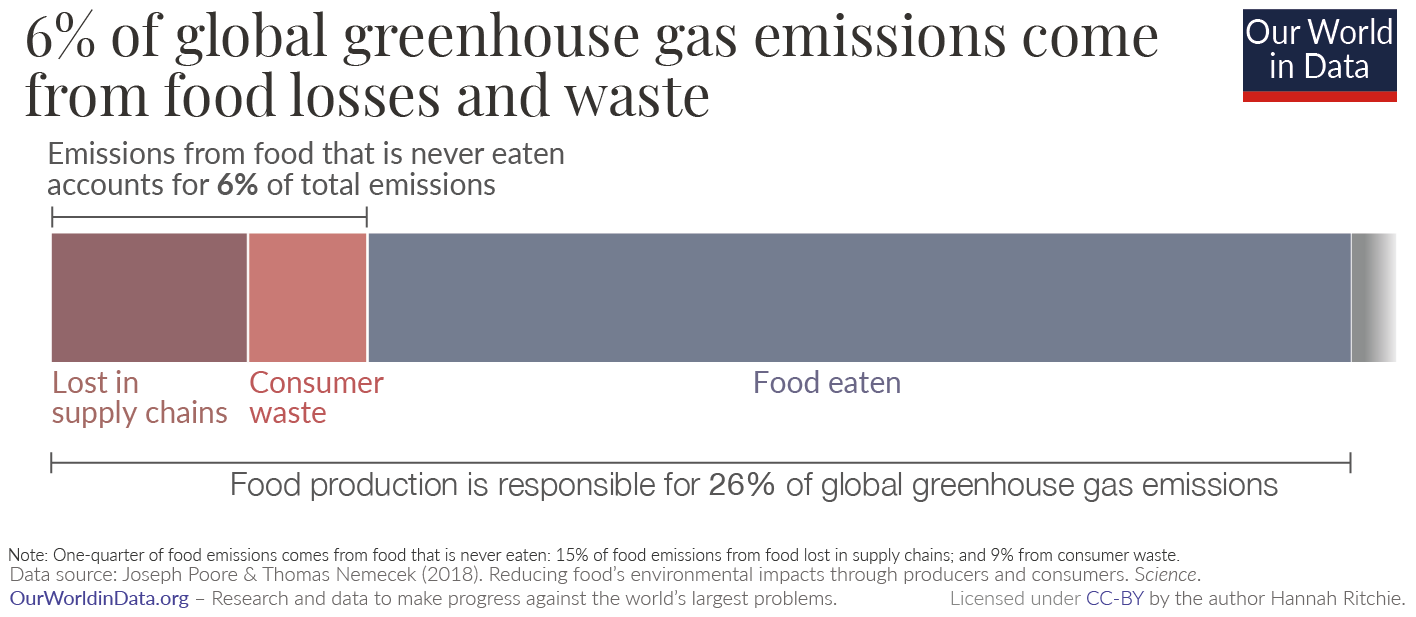Welcome Urban nomads to another issue of the nomad chronicles. Today I will be talking about the food waste in hotel buffets and its impacts on the environment. I loved visiting hotel buffets as they often serve a spread of delicious food. However, as a myopic consumer, I have given little thought to the impacts that arises from leaving food waste behind. However, after researching on this issue, I have became more aware and would therefore like to share them with you today.
In hotel buffets, as tourist often bite down on more than what they can eat, therefore this has resulted in a generation of a lot of food waste. Food waste refers to food that are suitable for consumption, but is not consumed and discarded ―either before or after it has expired (Juvan et al., 2018). Food waste usually occurs at both retail and consumption stages in the food value chain. The cause are often due to negligence or a conscious decision to throw food away (for example, an inability to finish the food that you order). In hotel buffets, food item transform into waste when it failed to be consumed by hotel guest or utilized fully by employee of the restaurant (Juvan et al., 2018). As such , food waste has been divided into 2 groups. Pre-consumer food waste usually includes overproduction, expiration, and fresh food trimming (Juvan et al., 2018). While post-consumer food waste have been labelled as plate waste, referring to left overs discarded by customers.
Environmental impacts
Food waste can create environmental impacts through the analyses of production and disposal methods. Looking at production, these resources would include land which has been used as farmland, water, fertilizer. In order to meet the hotel demands arising from buffet lines, large amount of fertilizer have been used in order to speed up and prevent crop failure. As such, when combined with poor agricultural practices, this can lead to soil leaching during events of heavy downpour. As such, this might lead to a hyper eutrophication of nearby lakes, resulting in water pollution. Furthermore, in order to maintain the arable land, tractors have to been used, resulting in an addition of carbon footprint due to the large amount of co2 released due to inefficient burning from diesel engines (Leverenz et al., 2020). Furthermore, carbon foot print can add up when we look at the transport, refrigeration energy demands in order to reach the hotels (Leverenz et al., 2020). Air pollution such as the formation of ozone as secondary pollutions occur as a result from the delivery trucks. As such, these environmental pollution generated have been “pointless” as they do not go into the tourist bellies. Rather, they are just being dumped into the bins as food waste.

Food wastage in hotel buffets being thrown away
Food waste can damage the environment by looking at the methods of disposal in landfills, therefore leading to negative environmental consequences. As food waste are being dumped into landfills, this can result in a slow accumulation of new food waste as it slowly piles up, trapping the old food waste underneath it (Moussawel et al., 2020). As such, this results in an anaerobic environment as the food waste slowly decomposes. Hence, this has resulted in landfill gas emissions ranging about 50 percent methane and 50 percent carbon dioxide. Food waste therefore are able to emit biogenic green houses gases like nitrous oxide , methane which are even more powerful green house gases than carbon dioxide. For example , Methane itself weights 25 times more carbon dioxide, highlighting how potent it is in global warming.

Different components of food waste in contributing to global GHG emissions
Conclusion
To conclude, food waste have resulted in a needless production of environmental pollution, which has been worsen by its two prong nature in both production and disposal. What further vilifies this is that food sometimes do not even reach onto the bellies of tourist due to improper management of resources. As tourist, we should do our part and not take what we can finish. Even better yet, the avoidance of wasteful hotel buffets can perhaps send a clear message to this business to clean up their acts. Perhaps, the next time you visit a buffet line, do know that a clean plate without food waste can go a long way in mitigating environmental pollution.
Below is a video talking about the problems of food waste plaguing society
References
Juvan, E., Grün, B., & Dolnicar, S. (2018). Biting off more than they can chew: Food waste at hotel breakfast buffets. Journal of Travel Research, 57(2), 232-242. doi:10.1177/0047287516688321
Leverenz, D., Hafner, G., Moussawel, S., Kranert, M., Goossens, Y., & Schmidt, T. (2020). Reducing food waste in hotel kitchens based on self-reported data. Industrial Marketing Management, doi:10.1016/j.indmarman.2020.08.008
Leverenz, D., Moussawel, S., Hafner, G., & Kranert, M. (2020). What influences buffet leftovers at event caterings? A german case study. Waste Management (Elmsford), 116, 100-111. doi:10.1016/j.wasman.2020.07.029

